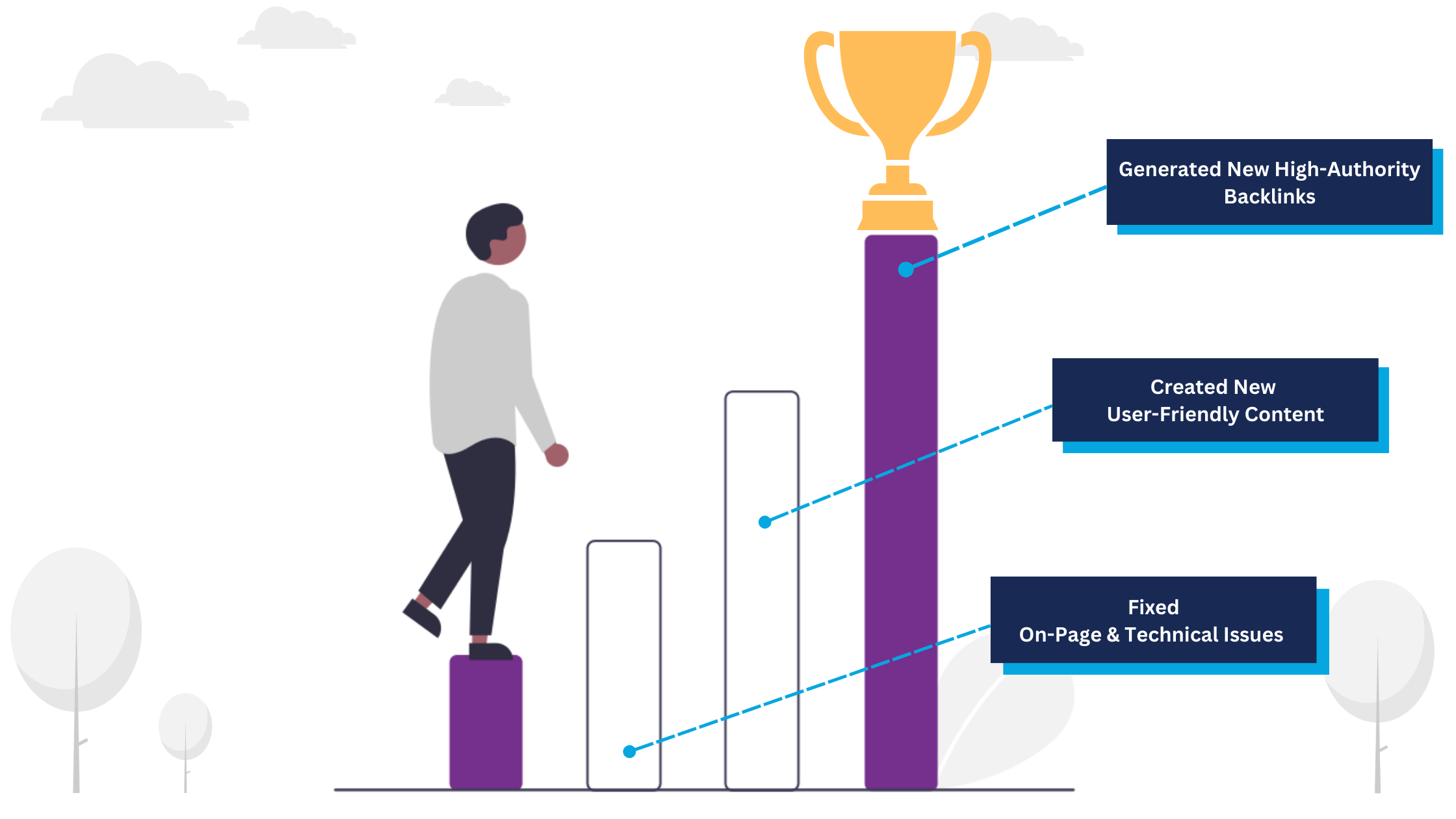In today's digital marketing landscape, Paid Search Intelligence has become the linchpin of online success. It's not just about throwing money into advertising; it's about making every cent count. Whether you're a seasoned marketer or just starting your online advertising journey, understanding Paid Search Intelligence is essential to drive results.
Introduction
What is Paid Search Intelligence?
Paid Search Intelligence is the art and science of optimizing your paid search advertising campaigns for maximum efficiency and effectiveness. It involves a deep understanding of how paid search works, strategic planning, data analysis, and continuous refinement.
Why is Paid Search Intelligence Important?
Paid search advertising, often referred to as Pay-Per-Click (PPC) advertising, can be a potent tool for businesses to connect with potential customers. However, without proper intelligence, you risk wasting your budget on ineffective campaigns. By mastering Paid Search Intelligence, you can make data-driven decisions that lead to higher ROI.
Getting Started with Paid Search
Defining Key Terms: SEM, PPC, and Paid Search
Search Engine Marketing (SEM) encompasses various techniques to promote your website on search engines. PPC is a specific form of SEM where advertisers pay a fee each time a user clicks on their ad. Paid Search falls under the umbrella of PPC and involves creating ads that appear when specific keywords are searched.
How Does Paid Search Work?
Paid search operates on a bidding system. Advertisers bid on keywords, and when a user searches for those keywords, the search engine's algorithm determines which ads to display based on bid amount and other factors.
Setting Up Your Paid Search Campaign
Keyword Research: The Foundation of Success
Before launching your campaign, thorough keyword research is crucial. Identify the keywords relevant to your business and target audience. Tools like Google Keyword Planner can help you discover high-performing keywords.
Crafting Irresistible Ad Copy
Your ad copy is your virtual storefront. It must be compelling, concise, and relevant to the user's search intent. A well-crafted ad can significantly impact click-through rates.
Budgeting and Bidding Strategies
Determining your budget and bidding strategy is essential. Start with a clear budget allocation, and consider automated bidding options offered by platforms like Google Ads to optimize your bids.
Maximizing Paid Search ROI
Quality Score: The Secret to Cost-Effective Ads
Quality Score is a metric used by search engines to measure the relevance and quality of your ads. Higher Quality Scores can lower your ad costs and improve ad positioning.
Ad Extensions: Supercharge Your Ads
Ad extensions allow you to provide additional information with your ads, such as site links, callouts, and location information. They can enhance your ad's visibility and click-through rate.
Ad Scheduling and Geographic Targeting
Optimize your campaigns by scheduling ads to run during peak times when your target audience is most active. Geographic targeting ensures your ads are shown to the right people in the right locations.
Tracking and Measuring Success
Conversion Tracking: From Clicks to Conversions
Track conversions to understand which clicks lead to valuable actions, such as purchases or form submissions. Conversion data is essential for optimizing your campaigns.
Key Performance Indicators (KPIs)
Identify and monitor key performance indicators, such as click-through rate (CTR), conversion rate, and return on ad spend (ROAS). These metrics help you evaluate campaign effectiveness.
Tools for Analyzing Campaign Performance
Utilize tools like Google Analytics and Google Ads' built-in reporting to gain insights into your campaign's performance. These tools provide valuable data for making informed decisions.
Frequently Asked Questions (FAQs)
Q1: What is the difference between PPC and SEO? A1: Pay-Per-Click (PPC) is a form of paid advertising where you pay for each click on your ad. Search Engine Optimization (SEO) is the process of optimizing your website to rank higher in organic search results.
Q2: How can I improve my ad's Quality Score? A2: Focus on relevance. Choose keywords that align with your ad and landing page, write compelling ad copy, and provide a positive user experience on your website.
Q3: What are negative keywords, and why are they important? A3: Negative keywords are terms you specify to prevent your ads from showing when those terms are searched. They help you avoid irrelevant clicks and improve ad targeting.
Q4: How do I allocate my budget effectively? A4: Determine your campaign goals, set a budget, and regularly analyze performance. Experiment with different budget allocations to find the most effective strategy.
Q5: What are the best practices for A/B testing ad copy? A5: Start with a clear hypothesis, test one element at a time, and measure performance rigorously. Continually refine your ads based on data-driven insights.
Q6: How can I stay updated with the latest paid search trends? A6: Stay informed by following industry blogs, attending webinars, and participating in forums. Subscribe to newsletters and explore industry events to keep up with trends.
Advanced Paid Search Strategies
Remarketing: Bringing Back Lost Visitors With RLSA
RLSA, or Remarketing Lists for Search Ads, is a powerful digital advertising strategy that allows advertisers to re-engage with website visitors who have previously interacted with their site.
It works by customizing search ads and bidding for users on these lists, making your ads more relevant and potentially improving conversion rates by targeting an audience that's already shown interest in your products or services.
Target In-Market Audiences Only
Optimizing paid search campaigns for specific in-market audiences involves tailoring your ad content and bidding strategies to target users actively researching or considering products or services related to your business.
This approach can be highly effective because it focuses your advertising efforts on an audience more likely to convert, thereby potentially boosting conversion rates and ROI.
However, it's essential to be mindful of audience size and the stage of the buying cycle. In-market audiences can vary in size, and if the audience is too narrow, it may limit your reach.
Additionally, this strategy is most effective for businesses with clearly defined products or services and may not work as well for niche or highly specialized offerings.
Caution should also be exercised when adjusting bids, as overly aggressive bidding can increase costs. Therefore, it's important to carefully analyze audience data and adjust your strategy accordingly to strike the right balance between reach and relevance.
Paid Search Intelligence Tools
Google Ads:
Google maintains a commanding presence with a market share of 91.6%, far surpassing its competitors.
This overwhelming dominance in the search engine market underscores the importance of Google Ads as the top consideration for paid search advertising.
With Google Ads, advertisers can leverage a wide range of targeting options, including keywords, demographics, and remarketing, to reach the right audience at the right time.
The platform's extensive data and analytics tools also enable advertisers to fine-tune their campaigns and measure performance effectively.
Other Paid Search Platforms
Explore alternative advertising platforms like Microsoft Advertising and social media platforms such as Facebook Ads and LinkedIn Ads for additional opportunities.
Analytics Tools for Deeper Insights
Leverage analytics tools like Google Analytics and Google Data Studio to gain deeper insights into user behavior and campaign performance.
Compliance and Ethical Considerations
Understanding Ad Policies
Adhere to the advertising policies of the platforms you use. Violating these policies can result in ad disapproval or account suspension.
Ethical Advertising Practices
Maintain transparency and honesty in your advertising. Misleading or deceptive ads can harm your brand's reputation.
Future Trends in Paid Search
Voice Search and AI Integration
Voice search is on the rise, and AI-driven tools can enhance the effectiveness of your paid search campaigns. Stay prepared for these emerging trends.
Privacy and Data Protection
As privacy concerns grow, understanding data protection regulations and ensuring compliance is essential for maintaining trust with your audience.
Conclusion
Paid Search Intelligence is your compass in the vast ocean of digital advertising. By mastering the strategies, tools, and best practices outlined in this guide, you can navigate paid search with confidence. Continuously refine your approach, stay updated with industry trends, and watch your online presence and ROI soar.


